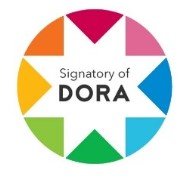Relation ship between vocational guidance and multiple intelligences: an inseparable scientific perspective
Una perspectiva científica inseparable
DOI:
https://doi.org/10.59654/c3bbwe78Keywords:
Vocational guidance, vocational choice, substantive theories, multiple intelligences.Abstract
The article deals with the relationship between vocational guidance and multiple intelligences.
People can experience and explore different career options and paths, which involves conducting research, talking to people working in different industries, doing internships or professional practice, and engaging in personal and professional development activities. It is necessary for the activities and decisions made during this process to be in line with the student's goals and objectives, so as to generate a sense of coherence and purpose in their developmental path.
However, most of the time, this responsibility is left in the hands of the students. Teachers, counselors, or career advisors in educational institutions make little effort to develop guidance that promises better achievements for students when choosing their college major. In this sense, the article analyzes vocational guidance from the perspective of different theories and how a better purpose can be achieved if Howard Gardner's theory of multiple intelligences is considered in relation to vocational guidance and choice. Finally, some practical resources for making educational decisions are mentioned..
Downloads
References
Busot, J. A. (1995). Elección y Desarrollo Vocacional. Ediluz.
Cano, C. M. (2008). Motivación y elección de carrera. Revista Mexicana de Orientación Educativa, 5(13), 6-0. http://pepsic.bvsalud.org/pdf/remo/v5n13/v5n13a03.pdf
D'Egremy, A. F. (2022). Cómo descubrir tu vocación. España: Anaya.
De La Mano, M. y. (2013). Motivaciones en la elección de la carrera universitaria: metas y objetivos de los estudiantes de Traducción y Documentación de la Universidad de Salamanca. Salamanca: Ediciones de la Universidad de Salamanca.
Ducoing, P. (. (2005). Sujetos, actores y procesos de formación. México, DF, México: Consejo Mexicano de Investigación Educativa. https://es.scribd.com/doc/33557860/COMIE-Actores-y-procesos-de-formacion-Tomo-II-estado-del-conocimiento
González, B. J. Lessire, O. (2005). Aspectos más recientes en orientación vocacional. Revista Iberoamericana de Educación. www.rieoei.org/deloslectores/876Gonzalez.PDF
Heppner, M. J., Hinkelman, O. J., & Humphrey, C. F. (1994). Shifting the Paradigm: The use of Creativity in Career Counseling. Journal of Career Development, 21(1), 77-86. https://link.springer.com/article/10.1007/BF02117430
Ministerio de Educación. (2007). Manual de Tutoría y Orientación Educativa. Lima: Autor. https://data.miraquetemiro.org/sites/default/files/documentos/MANUAL%20DE%20TUTORIA%20%20Y%20ORIENTACION%20EDUCATIVA%20copy.pdf
Pelletier, D. (1978). L'approche opératoire du développement personnel et vocationnel: ses. Canadian Journal of Counselling and Psychotherapy, 12(4), 207-2017. de https://cjc-rcc.ucalgary.ca/article/view/60195/45557
Romero, R. S. (1994). Orientación vocacional no discriminatoria. Propuestas desde el modelo de activación del desarrollo vocacional y persona. En M. Irradier (Ed.), Orientación académico-vocacional para una toma de decisión no discriminatoria (págs. 25-38). EMAKUNDE / Instituto Vasco de la Mujer. https://dialnet.unirioja.es/servlet/articulo?codigo=3143950
Vidales, I. (2013). Nuevas prácticas de orientación vocacional. México, DF: Trillas. https://www.scribd.com/document/370270279/Libro-Nuevas-Practicas-de-OrientacionVocaional-de-Ismael-Vidales-Delgado
Quispe, Z. M. (2014). Motivos ocupacionales y autoconcepto en la elección de carrera. Tesis para optar por el título de Licenciada en Psicología con mención en Psicología Educacional que presenta la Bachiller. https://tesis.pucp.edu.pe/repositorio/bitstream/handle/20.500.12404/5549/QUISPE_ZUNIGA_MELISSA_MOTIVOS_OCUPACIONALES.pdf?sequence=1&isAllowed=y
Yamada, G. y Castro, F. J. (2013). Calidad y acreditación de la Educación Superior: retos urgentes para el Perú. Lima: Universidad del Pacífico - Consejo de Evaluación, Acreditación y Certificación. https://repositorio.up.edu.pe/bitstream/handle/11354/1916/Yamada Gustavo2013.pdf
Downloads
Art. 5 (Spanish)Art. 5
Art. 5 (French)
Art. 5 (Portuguese)
Art. 5_HTML (Spanish)
Art. 5_HTML
Art. 5_HTML (French)
Art. 5_HTML (Portuguese)
Published
Issue
Section
License
Copyright (c) 2024 Revista Digital de Investigación y Postgrado

This work is licensed under a Creative Commons Attribution-NonCommercial-ShareAlike 4.0 International License.










